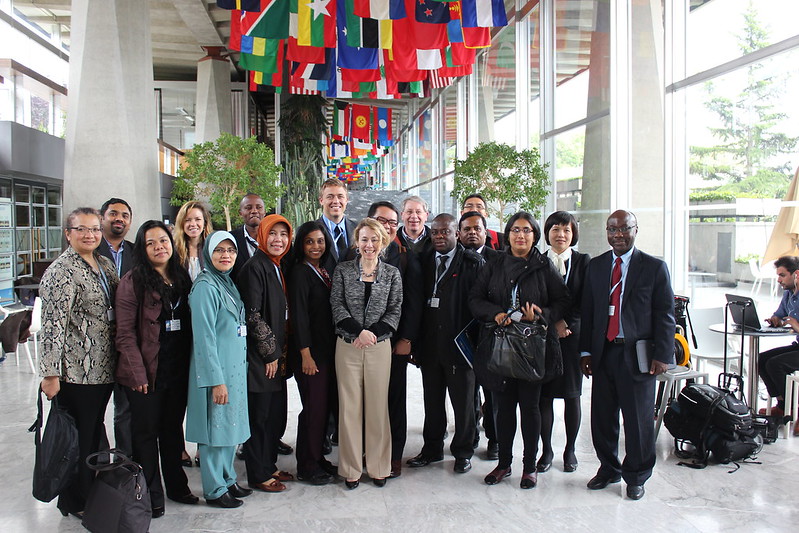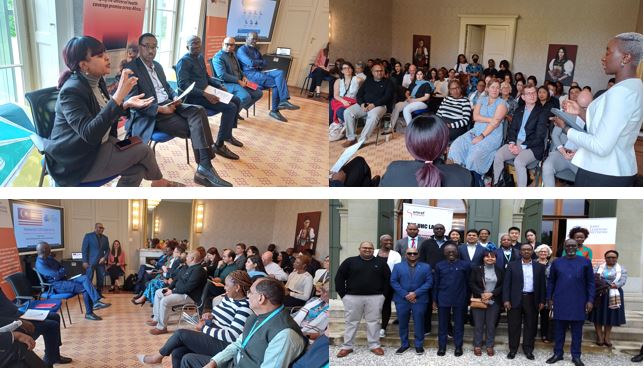Shaping Resilient Health Systems: JLN’s Strategies for Tackling Health Challenges in a Changing World

Author: Rahul S Reddy Kadarpeta, Mahlet Gizaw, Adwoa Twum, Jonty Roland Healthcare needs are rapidly evolving across the world, driven by a combination of emerging global health threats, shifting demographics, climate challenges and technological advancements. Countries must continuously adapt and prioritize the limited resources to meet the changing healthcare needs of their population. COVID-19, and more recently, Mpox are defining moments in global public health, which have prompted investments of many nations in building resilient health systems including early warning systems, vaccine distribution networks, and pandemic preparedness. Despite the warning signs, the Global Health Security Index found that no country was fully prepared for a pandemic as of 2021. Increasing life expectancy is also influencing a demographic shift in the population and in 2021, 727 million people were aged 65 or older globally. This estimate is projected to more than double by 2050 with 68% of the population expected to reside in an urban setting. These trends are likely to increase the risk for non-communicable diseases along with the global demand for primary healthcare and long-term care services, is expected to increase by 50% by 2030. Further, climate change has been recognized as a major threat to global health and the Lancet Countdown Report 2023 revealed climate-sensitive diseases like malaria, dengue, and heat-related illnesses are on the rise, especially in low- and middle-income countries (LMICs). In addition, there is an observed surge in use of technology, telemedicine and digital health tools globally, including the recent emergence of artificial intelligence (AI) for early detection of diseases like cancer, improve diagnostic accuracy, and optimize treatment plans. As healthcare systems across the globe grapple with these ever-evolving challenges, the Joint Learning Network for Universal Health Coverage (JLN) is working with policymakers and practitioners from across 40 member countries to collectively find solutions to address some of these. JLN’s technical focus has centered on tackling key challenges in these areas including climate and health, emergency preparedness, digital health and primary healthcare. This direction aligns with the recommendations from the ‘Summit of the Future’ held in September 2024, which served as a pivotal moment to accelerate progress towards the 2030 Agenda for Sustainable Development, catalyzing focus on the “how” of global cooperation for addressing emerging opportunities and risks. Particularly for health-related goals, this has provided stakeholders valuable lessons to reimagine health systems, prioritize resilience, and invest in innovations that enable countries to work towards building more equitable, inclusive, and sustainable health systems. This journey is complex and multidimensional, and JLN supports member countries to work collectively to accelerate progress. In this blog we explore how JLN is amplifying its contributions to this discourse and supporting global efforts. JLN’s recent technical offerings include learning collaboratives on climate and health, emergency preparedness, digital health and primary healthcare. These areas have been recognized as priority needs from member countries during the JLN’s 2022 annual Country Core Group surveys and these continue to be reflected in the recent surveys. As a part of the process for each learning collaborative, country practitioners and policymakers identify key priority areas where there are knowledge gaps or country priorities, share experiences of pragmatic solutions, and document them in knowledge products that can be adapted and implemented. 1. Climate and Health A recent report on the cost of inaction for climate change estimates that the deaths caused by climate change in Low- and Middle-Income Countries could reach between 14.5 and 15.6 million by 2050. Nearly half of this burden is projected to be in Sub Saharan Africa with a quarter of it estimated to be in South Asia. The Climate-Smart Health Systems Collaborative brings together mid- to senior-level government practitioners from 21 countries – Bahrain, Belize, Bhutan, Colombia, Egypt, Ethiopia, Fiji, India, Indonesia, Lao PDR, Malaysia, Mongolia, Morocco, Nigeria, Papua New Guinea, Peru, Saint Lucia, Sao Tome and Principe, Senegal, the United Arab Emirates, and Vietnam for peer-to-peer learning to address challenges related to climate and health. Facilitated by the World Bank in collaboration with Australia’s DFAT, USAID, Government of Japan and the Gates Foundation, the collaborative enables policymakers to learn from each other on building climate-smart health systems, climate change adaptation, resilience, and mitigation in the health sector, as an integral part of country efforts to achieve Universal Health Coverage (UHC). The knowledge products prioritized for co-production by the member countries for the first year of the collaborative focus on governance, financing, and data and accountability. Under governance, members are co-developing a how-to guide for implementing climate and health governance across multiple levels and within appropriate institutional structures. For financing, members are co-developing knowledge products on making the case for investment in climate and health, as well as a repository of costing, budgeting, and Public Financial Management (PFM). Regarding data and accountability, members are co-developing a toolkit to help analyze multiple data sources from various sectors and enable policy actions based on this integrated data and a repository of guides to support climate-smart health facilities. For the second year of the collaborative, member countries have expressed interest in co-developing knowledge products focusing on multisectoral action, engaging communities and service delivery models. 2. Health Emergency Preparedness The COVID-19 pandemic has driven home the importance of health emergency preparedness. While that understanding is undisputed, countries face a myriad of challenges in turning it into reality. These challenges take many forms, ranging from the conceptual (e.g., what constitutes health emergency preparedness versus what constitutes more generalized health system strengthening) to the operational (e.g., how to build effective and well-prioritized health emergency preparedness components into broader health planning efforts and particularly into primary health care (PHC) systems). The Health Emergency Preparedness Collaborative brings together frontline practitioners and policymakers from 18 countries namely: Bhutan, Cambodia, Ethiopia, Ghana, Indonesia, Kenya, Lao PDR, Lebanon, Liberia, Malawi, Malaysia, Nigeria, Pakistan, Philippines, Solomon Islands, Tajikistan, Togo and Zambia, for peer-to-peer learning to address challenges in this space. Facilitated by the World Bank with technical inputs from Resolve to Save Lives, the collaborative facilitates learning to improve the design and implementation

